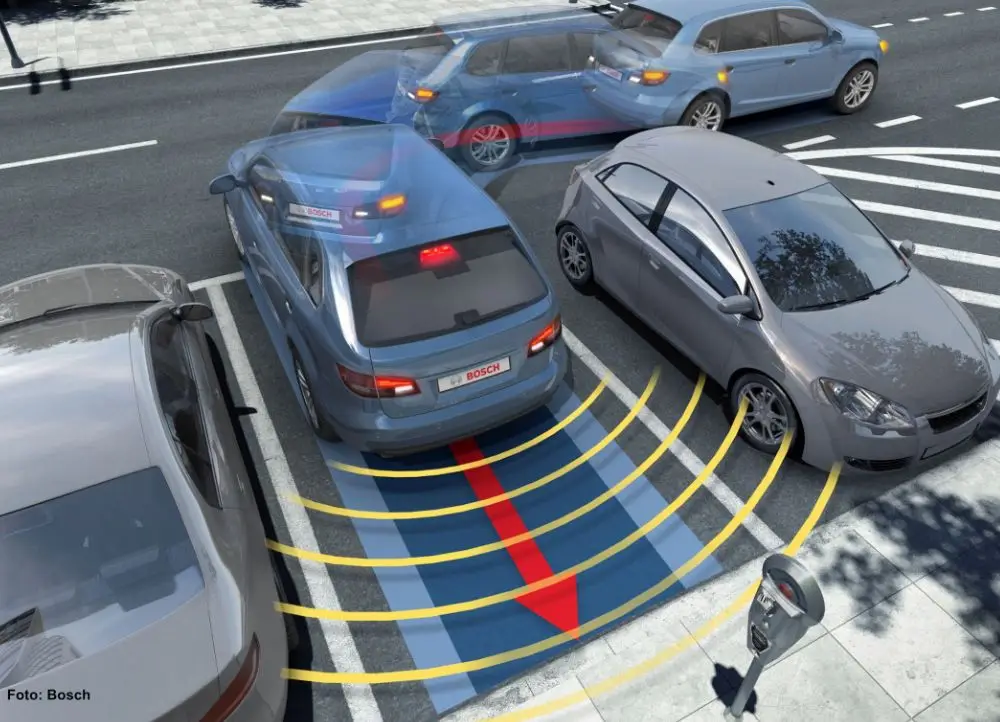How does a car’s parking steering assistant system work?


Car parking assistant systems have become increasingly popular in recent years, as they provide drivers with a valuable tool to navigate tight parking spaces with ease. These systems utilize advanced technology to assist drivers in parking their vehicles safely and accurately. In this article, we will explore how a car’s parking steering assistant system works, delving into the various components and features that make it possible.
Understanding the Basics
A car parking assistant, also known as a parking steering system, is a smart car feature that uses sensors and cameras to help drivers park their vehicles. It is an example of advanced driver assistance technology, which aims to enhance safety and convenience on the road. The parking assist system primarily relies on parking sensor technology to detect obstacles and provide guidance to the driver.
The Components of a Parking Steering System
A car’s parking steering assistant system consists of several key components that work together to ensure accurate parking. These components include:
1. Parking Sensors: These sensors are strategically placed around the vehicle, typically on the front and rear bumpers. They use ultrasonic or electromagnetic technology to detect objects in the vehicle’s vicinity. When an obstacle is detected, the sensors send signals to the control unit.
2. Control Unit: The control unit acts as the brain of the parking steering system. It receives signals from the parking sensors and processes the data to determine the distance and position of obstacles. Based on this information, the control unit provides instructions to the driver through visual or auditory cues.
3. Display Unit: The display unit is usually located on the dashboard or rearview mirror. It provides visual feedback to the driver, displaying information such as the distance to obstacles and the vehicle’s trajectory. Some advanced parking assist systems also include a rearview camera display, which offers a live video feed of the vehicle’s surroundings.
How the Parking Steering System Works
Now that we understand the components of a car’s parking steering assistant system, let’s explore how it works in practice:
1. Activation: The parking assist system is typically activated when the driver engages the reverse gear or presses a dedicated button. Once activated, the system starts scanning the vehicle’s surroundings for obstacles.
2. Sensor Detection: The parking sensors continuously emit signals and measure the time it takes for the signals to bounce back. By analyzing the time difference between the emitted and received signals, the sensors can calculate the distance to nearby objects.
3. Obstacle Detection: When an obstacle is detected within a certain range, the parking steering system alerts the driver through visual or auditory cues. These cues can include beeping sounds, flashing lights, or messages on the display unit.
4. Steering Assistance: As the driver begins to maneuver the vehicle, the parking steering system provides guidance to ensure accurate parking. This guidance can be in the form of steering wheel vibrations or automated steering control, where the system takes control of the steering wheel to guide the vehicle into the parking space.
5. Monitoring: Throughout the parking process, the parking assist system continues to monitor the vehicle’s surroundings for any changes. If new obstacles are detected or if the vehicle gets too close to an existing obstacle, the system will issue warnings to prevent collisions.
The Benefits of a Parking Steering Assistant System
Car parking assistant systems offer numerous benefits to drivers, including:
– Increased Safety: By providing real-time feedback and guidance, parking assist systems help drivers avoid collisions and minimize the risk of accidents while parking.
– Convenience: Parking in tight spaces can be challenging and time-consuming. A parking steering system simplifies the process, allowing drivers to park with confidence and efficiency.
– Improved Accuracy: With the assistance of a parking steering system, drivers can achieve precise parking, even in narrow or crowded areas. This reduces the likelihood of scratching or damaging the vehicle or surrounding objects.
– Enhanced Confidence: For inexperienced or nervous drivers, a parking assist system can boost confidence and reduce anxiety when it comes to parking.
In Conclusion
Car parking assistant systems are a testament to the continuous innovation in automotive technology. By utilizing parking sensor technology, these systems provide drivers with valuable assistance and guidance while parking their vehicles. With their ability to detect obstacles, offer real-time feedback, and provide steering assistance, parking steering systems enhance safety, convenience, and accuracy in the parking process. As car technology continues to evolve, we can expect further advancements in parking technology and other smart car features, ultimately making our driving experiences safer and more enjoyable.
Recent Posts
How do I create an engaging and informative online quiz or assessment?
Creating an engaging and informative online quiz or assessment can be a powerful tool for… Read More
What are the most effective methods for managing and reducing work-related stress in the hospitality industry?
Work-related stress is a common issue in the hospitality industry, where employees often face long… Read More
How can I improve my assertiveness and communication skills in a leadership position?
In a leadership position, assertiveness and effective communication skills are crucial for success. Being able… Read More
What are the key elements of a successful employee recognition and rewards program?
Employee recognition and rewards programs play a crucial role in motivating and engaging employees, as… Read More
How do I effectively manage and respond to customer feedback and reviews?
Customer feedback and online reviews play a crucial role in shaping a company's reputation and… Read More
What are the best strategies for effective time management as a stay-at-home parent?
Effective time management is crucial for stay-at-home parents who juggle multiple responsibilities on a daily… Read More